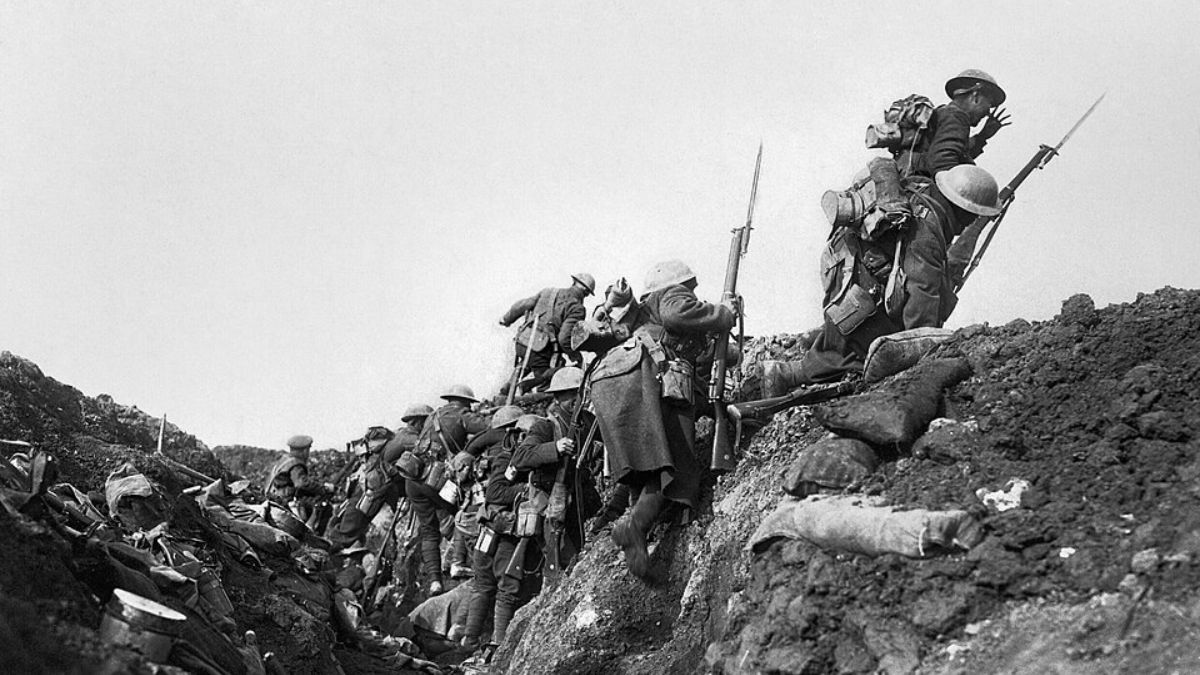World War I, one of the most defining events of the 20th century, began on July 28, 1914, with Austria and Hungary declared war on Serbia. This was a direct response to the killing of Archduke Franz Ferdinand of Austria and his wife by a Serbian nationalist.
If you are a history geek who loves to learn about important events from the past, Firstpost Explainers’ ongoing series, History Today , will be your one-stop destination to explore key events.
On this day in 2005, the Irish Republican Army, popularly known as the IRA, announced a formal end to its armed campaign. This marked a monumental step towards lasting peace in Northern Ireland. In 1932, the first zombie movie, White Zombie, was released.
Here is all that happened on this day.
World War I began
Just a month after the killing of Archduke Franz Ferdinand of Austria and his wife by a Serbian nationalist in Sarajevo, Austria-Hungary declared war on Serbia on July 28, 1914. The assassin, Gavrilo Princip, was a Bosnian Serb nationalist with ties to Serbian secret societies, leading Austria-Hungary to hold Serbia directly responsible. This was what led to World War I, also known as the Great War.
On July 28, 1914, Emperor Franz Joseph of Austria-Hungary signed the declaration of war, effectively launching the Great War. Within days, Europe’s major powers were drawn in. Russia, allied with Serbia, began mobilising against Austria-Hungary. Germany then declared war on Russia on August 1 and France on August 3. It also invaded Belgium. That act triggered Britain’s entry into the war on August 4, due to its treaty obligations to protect Belgian neutrality.
What could have been a localised conflict spiralled into a global war due to a complex web of alliances, rising nationalism, militarism, and imperial competition. By the end of 1914, major powers across Europe, Africa, Asia, and beyond were involved. The war, which introduced new technologies like machine guns, tanks and poison gas, killed over 16 million people.
IRA announced the end of its armed campaign
The Irish Republican Army (IRA) formally announced the end of its decades-long armed campaign on July 28, 2005, marking a monumental step towards lasting peace in Northern Ireland.
The IRA, a paramilitary organisation, had fought since the late 1960s for Northern Ireland to leave the United Kingdom and unite with the Republic of Ireland. Its campaign involved bombings, assassinations, and armed attacks, resulting in thousands of deaths. The British government and unionist forces opposed the IRA’s goal, leading to a brutal and deeply divisive conflict.
In the years leading up to 2005, peace efforts had gained ground. The Good Friday Agreement of 1998 was a major step, establishing a power-sharing government in Northern Ireland and calling for the disarmament of paramilitary groups. While some IRA activity continued post-agreement, pressure mounted from political allies like Sinn Féin, the public, and international mediators to shift to peaceful means.
In a recorded statement broadcast on July 28, the IRA said it would “end the armed campaign” and pursue its objectives “exclusively through peaceful political means.” The group also committed to decommissioning its weapons and cooperating with independent arms inspectors, a critical gesture for trust-building.
The first zombie movie was released
The first full-length zombie film, White Zombie, was released on this day in 1932. Directed by Victor Halperin, this black-and-white horror classic introduced the concept of the zombie to cinema.
Set in Haiti, White Zombie tells the story of a young woman, Madeleine, who is turned into a zombie by a voodoo master named Murder Legendre, played chillingly by Lugosi. Using traditional Haitian folklore rather than modern viral infection tropes, the film portrays zombies as mindless slaves controlled through black magic rather than reanimated corpses.
Though it was a low-budget production, White Zombie made a significant impact. Its eerie atmosphere, haunting score, and Lugosi’s mesmerising performance helped it stand out in the early days of horror cinema. While critics at the time gave mixed reviews, the film eventually gained a cult following and is now considered a landmark in horror history.
This Day, That Year
On this day in 1976, an earthquake in China’s Tangshan killed more than 240,000 people.
In 1821, Peru declared its independence from Spain.
King Henry VIII of England privately married his fifth wife, Catherine Howard, on this day in 1540.
)